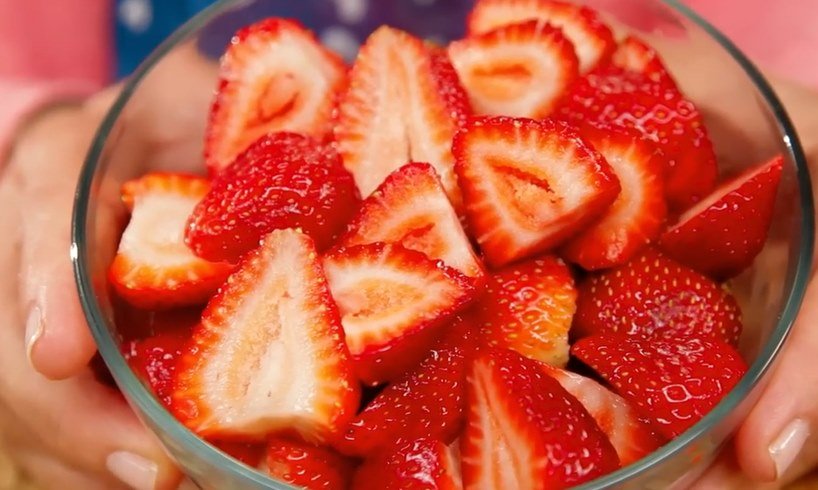
Apples are great, and blueberries are awesome, but according to new research, strawberries might be the best, and the red fruit might be the most disgusting as well.
Experts from the University of Cincinnati published a study in the journal Nutrients that revealed how eating strawberries every day can help fight or reduce the risk of dementia for certain people of middle age.
The researchers gathered a group of 30 patients, including 5 males and 25 females between the ages of 50 and 65, who were overweight and were showing signs of mild cognitive impairment.
The 30 participants were split into two groups: 5 males and 10 females were placed in the placebo group, and all participants in the strawberry group were female.
Once a day, the 15 women were given whole-fruit strawberry powder — the equivalent of one cup of whole strawberries. The other 15 people were given placebo every day. The study lasted 12 weeks.
At the end of the study, the experts discovered that the participants who received the powder improved their performances on a word-list learning test and had a significant reduction in depressive symptoms compared to the other half who got the placebo.
The researchers wrote: “Examining group differences…the strawberry-treated group exhibited a relative reduction of interference in verbal learning and memory. In addition, the strawberry group reported fewer mood disturbances relative to the placebo group. The strawberry-treated group reported a lower level of depressive symptoms on the Beck Depression Inventory.”
Robert Krikorian, professor emeritus in the UC College of Medicine’s Department of Psychiatry and Behavioral Neuroscience, explained why blueberries and strawberries are great for memory by saying: “Both strawberries and blueberries contain antioxidants called anthocyanins, which have been implicated in a variety of berry health benefits such as metabolic and cognitive enhancements.”
He added: “There is epidemiological data suggesting that people who consume strawberries or blueberries regularly have a slower rate of cognitive decline with aging.”
The professor revealed that garden strawberries are rich in ellagitannins and ellagic acid that contain anti-inflammatory, antioxidant, antimicrobial, and anticancer properties.
Therefore, strawberries possess the ability to reduce inflammation in the brain, which will result in improved cognitive function.
He concluded by: “So, one might consider that our middle-aged, overweight, prediabetic sample had higher levels of inflammation that contributed to at least mild impairment of executive abilities. Accordingly, the beneficial effects we observed might be related to the moderation of inflammation in the strawberry group.”
Are you having a good day today?
I'm sorry for ruining it by posting this video of a strawberry under a microscope. pic.twitter.com/xQKSG04OYK
— KRAMPUS QENNY (@AKBrews) March 28, 2023
Now for the part about strawberries being almost repulsive. While the bright red fruit will help people remember their day, there is a video that could ruin it.
The clip which has almost 3 million views is titled: “Are you having a good day today? I’m sorry for ruining it by posting this video of a strawberry under a microscope.”
The footage features a scientist shaving off a thin slice of strawberry and placing it under a microscope.
Fruit lovers get a magnifier’s-eye view that reveals a legion of tiny critters crawling around.
The purpose of the video is to strongly encourage people to thoroughly wash strawberries before eating them.
Some people suggest that using salt water is the best option to get rid of the almost invisible worms. Others are against it because it ruins the taste.
The good news is that while the video is stomach-turning, scientists and experts have revealed that it is harmless.
Iowa entomologist Don Lewis revealed: “For one, the larvae will be one-fifth of an inch — not even visible to the naked eye.”
Lewis received more good news by sharing: “We were able to spot them, it’s unlikely that grocery store fruit would harbor them as they’re killed by refrigeration.”
Will more people embrace strawberries moving forward?






